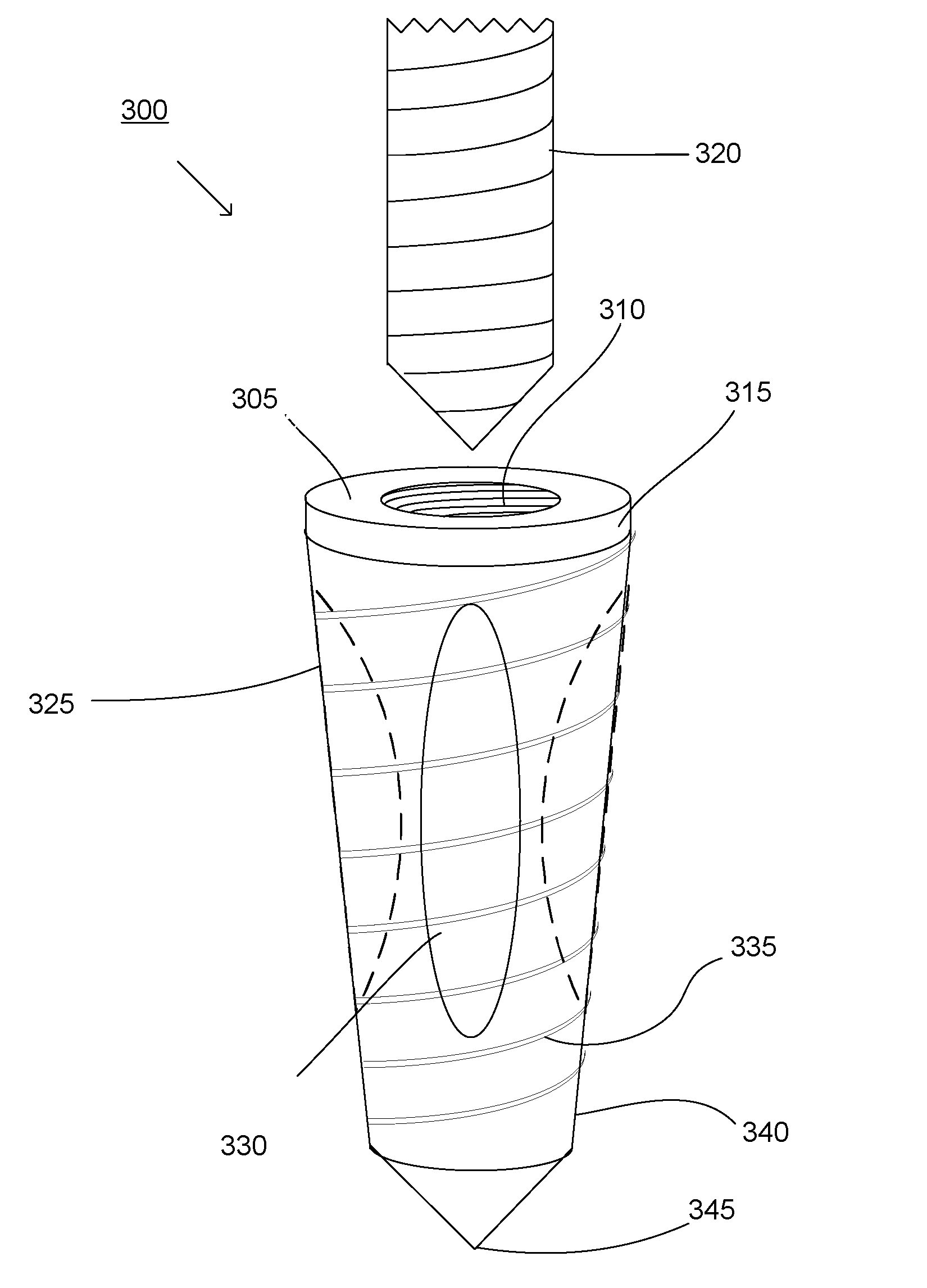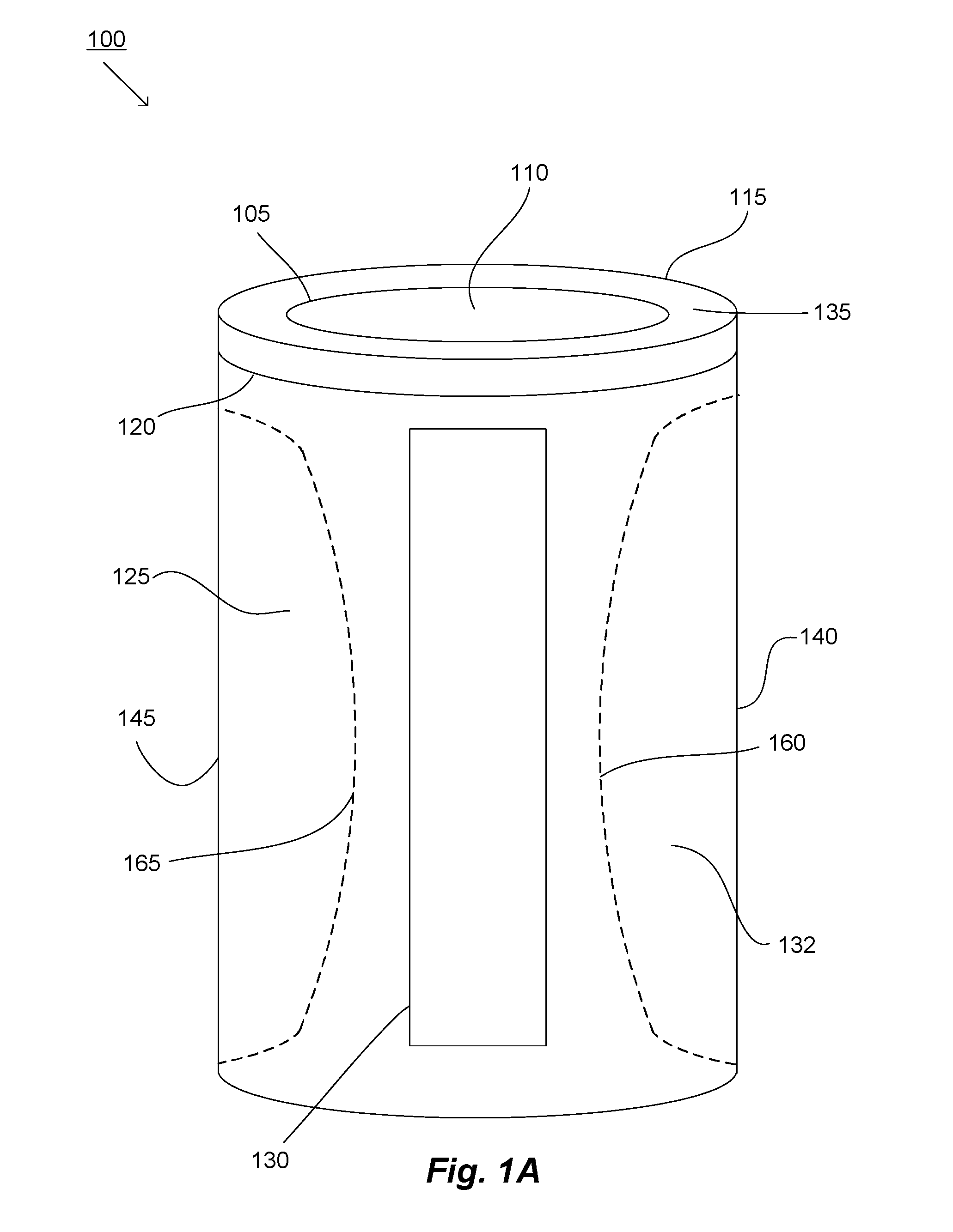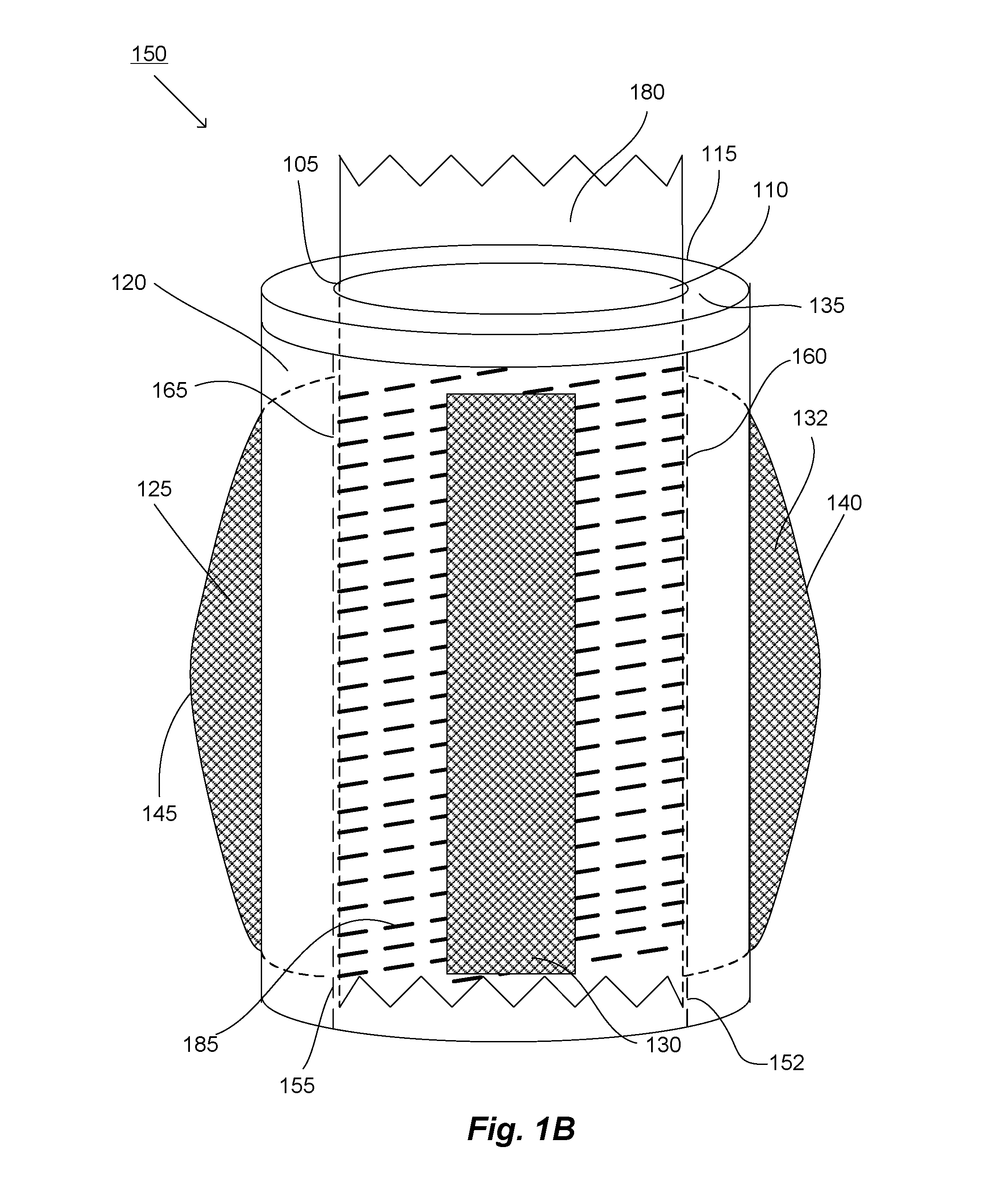Systems and Methods for the Medical Treatment of Structural Tissue
a technology of structural tissue and medical treatment, applied in the field of biomedical devices and methods, can solve the problems of insufficient safety treatment of prior devices, difficulty in insertion, and difficulty in adjusting the position of the spinal cord, so as to increase the purchase, facilitate the insertion, and increase the purchase
- Summary
- Abstract
- Description
- Claims
- Application Information
AI Technical Summary
Benefits of technology
Problems solved by technology
Method used
Image
Examples
Embodiment Construction
[0064]The present invention is directed generally to biomedical device(s) and method(s). More specifically, the embodiments may include a device(s) and method(s) used in various medical treatments. For example, various embodiments may include device(s) and method(s) that relate to reconstructing, replacing, attaching, connecting or repairing structural tissue such as bones, ligaments, etc. in living cells or organisms. In various embodiments, the present invention may include one or more anchor(s) mechanisms used to attach or repair structural tissue, for example, bones, etc. The various anchor mechanisms may be of a unique design that increases the purchase of, for example, a screw or a bolt. The various anchor mechanisms may be of a type that includes one or more expandable members. The expandable members may be of various geometries and wall designs for use in various types of structural tissue and opening in the structural tissue. In various embodiments, the anchoring mechanism ...
PUM
 Login to View More
Login to View More Abstract
Description
Claims
Application Information
 Login to View More
Login to View More - R&D
- Intellectual Property
- Life Sciences
- Materials
- Tech Scout
- Unparalleled Data Quality
- Higher Quality Content
- 60% Fewer Hallucinations
Browse by: Latest US Patents, China's latest patents, Technical Efficacy Thesaurus, Application Domain, Technology Topic, Popular Technical Reports.
© 2025 PatSnap. All rights reserved.Legal|Privacy policy|Modern Slavery Act Transparency Statement|Sitemap|About US| Contact US: help@patsnap.com



